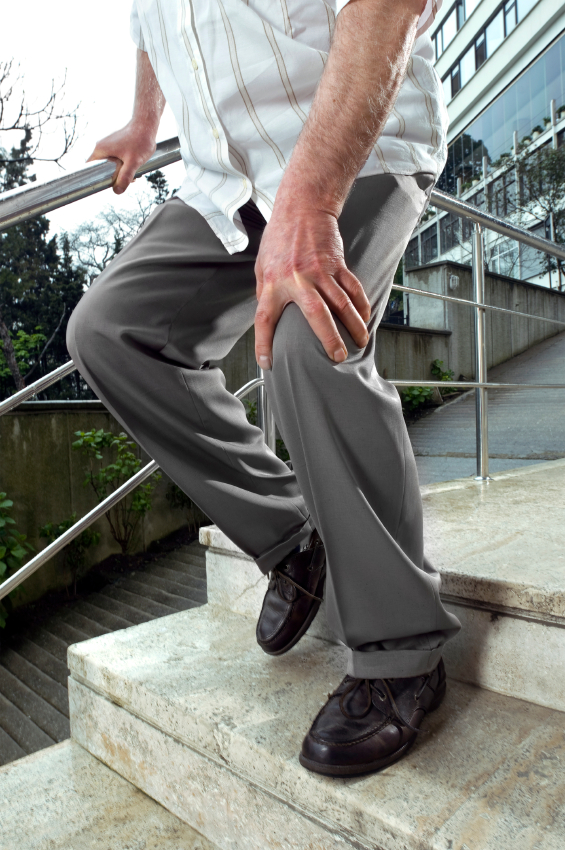One of the major causes of injuries for seniors is falling. While accidents happen, a number of falls could be avoided by taking a few extra precautions and planning ahead. Falls that may not be serious for someone who is young or middle aged could be serious for a senior. As we age, bones become brittle and even the slightest fall could cause serious injury. Recent statistics have shown that ¼ of seniors over the age of 75 that experience a fall will not survive past 1 year.
In order to avoid the inconvenience and pain of falling, take measures to avoid the danger. Sometimes, avoiding a fall can be as simple as relying on the assistance of a helper. Amy’s Helping Hands provides qualified helpers to help seniors in navigating their lives without accidents.
Fitness Helps
One of the best way to lessen your risk for falling is by staying in shape. Getting up and about keeps your body nimble and your coordination sharp. Instead of dealing with stiff joints and sore muscles, you will stay in shape and moving will be easy. It may require more motivation to get moving as you age, but it is even more important the older you get to take short walks each day, use stairs on a daily basis, and maintain a clutter-free home. Cleaning up on everyday not only gets you moving, it means there will be plenty of clutter-free walking space in your home.
Tools of the Trade
If you have been advised by a doctor or physical therapist to use a walker, it is important to do so. Some seniors avoid these tools because they are embarrassed or become it is cumbersome. It may be difficult for them to accept they need walking assistance. However, your doctor has recommended these things for your benefit. If you avoid them, it could mean serious injury, which may disable you completely. Instead of needing a walker to get around, you may be restricted to a wheelchair. If you are uncomfortable using a walker to get around, remember the risk of potential injury and try to cope with the change.
Sometimes when a walker is recommended, or a senior has a tough time getting around, he will use the furniture in his home to assist him. If you get up in the middle of the night to use the bathroom, and through the night joints have stiffened, you may reach for nightstands, tables, and chairs to lean on. The problem is these items are not designed to assist movement and they may tip over. Even if you do not need the help of a walker throughout the day, you may need to leave one bedside for midnight drinks of water and early morning movement.
Safety equipment
Personal Emergency Response systems. These are devices that are used in case of a fall. With a press of the button you can alert emergency personnel to send help, or call a loved one or a neighbour. They are normally worn around your neck as a pendant, or on your wrist as a watch. Additionally, safety buttons can be placed throughout the house like in bathrooms and showers for added safety and protection. By calling Amy’s Helping Hands and for less than $40 per month get the added re-assurance that if something does happen you can get help.
Use Caution
Another way to avoid falls is to watch out for potential dangers. If you are outdoors, avoid icy and snowy sidewalks. Even when merchants make every effort to clean their parking lots and walkways, there can still be slick areas. Rely on the assistance of helpers to shop for you, or find someone who will escort you to the store and help you get around. The helpers at Amy’s Helping Hands assist seniors with errands as just being accompanied by someone may help you avoid outdoor falls. When inside, beware slippery showers. If bathing or showering is a problem, consider installing a handrail or a shower seat. Shower falls are fairly common among seniors since they are on a slick surface and unsupervised. Take special measures to make bath time safe.
Shoes, Shoes, Shoes
Even the most careful seniors find they are still occasionally clumsy. Choose comfortable, sensible footwear when you are trying to move safely. While heeled shoes may have been worth the sacrifice a few years ago, it may be better today to opt for sneakers or shoes designed for safe walking. Speak with your doctor about which shoes will offer the best support for your personal walking needs. Remember, sore feet do not perform as well as healthy, comfortable ones.
As a senior, you may get caught up in activities and events and forget to pay attention to your movements. The most important thing to remember is to relax and take your time. Now that you are retired and enjoying your golden years, there is no need to rush anywhere. Walk slowly, concentrate on your body and its movements, and use handrails and the help of others to get around safely. By following a few tips, you can move safely and avoid injury for years to come.
The information in the article is not intended to substitute for the medical expertise and advice of your healthcare provider. We encourage you to discuss any decisions about treatment or care with an appropriate healthcare provider.















